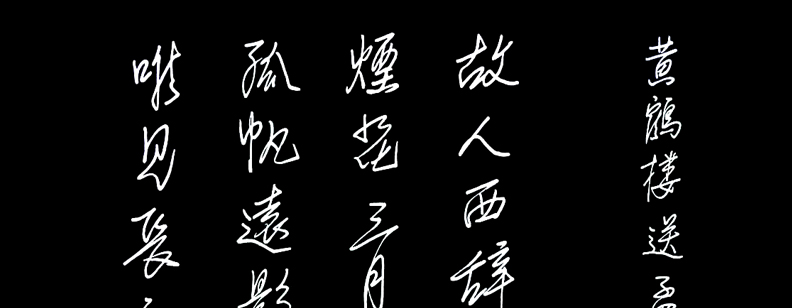江南三月雨微茫,罗伞叠烟湿幽香。夏日微醺正可人,却傍佳木趁荫涼。
霜风清和更初霁,轻蹙蛾眉锁朱窗。怜卿一片相思意,尤恐流年拆鸳鸯。
-题记
I read an article several days ago, Well-known scholar, Natsume Soseki , asked his students to translate “I love you” into Japanese. Most of the translation are from Google translation tool, such as “私はあなたを爱する” Natsume Soseki looked at the sky for a long time and said that these translations are totally wrong. For a Japanese to express his love, a sentence of “The moonlight tonight is fine” is enough. This might be from Japanese implied culture.
It is just a story, maybe just a joke, but it reflects the highest meaning of translation. Translation is not only converting the source language into the target language word by word without any skill. For so long “faithfulness, expressiveness and elegance” are three character standards in translation. It means we have to make sure the translated works accurately and beautiful as well.
Different countries and different nations have their own customs and language expressing habits. Some of them are open and directly, some of them are reserved and internalized. It is the biggest difference between western countries and eastern countries.
Just like the example mentioned before, the Japanese people are reserved, so they way they express love is different. If one knows Japanese culture well, he won’t translate that directly I am afraid. And for the Japanese reader, more local presentations will resonate.
Not only Japanese, we Chinese is also reserved in expression. We have 5000 years of history and culture, Chinese of one of the most beautiful languages in the world, for one meaning and one sentence; we have plenty of different way to express that. Why not choose the one beautiful and local which meet Chinese custom best?
For example, the best Chinese translation for “marry me” maybe not “嫁给我”, but it would be “hold your hand to the end”(执子之手,与子偕老). It comes from a classic Chinese poetry which has expressed the willing to live and share rest of the life together. If we Chinese see such translation, we may show a smile of understanding and appreciate the erudition and flexibility of the translator.
Of course, sense of beauty is not the only pursuit in translation. Every skill and sublimation is based on the accuracy of the translation. We should guarantee the meaning and intention of the source language first and then make the language more beautiful and authentic.
Below is the most famous English-Chinese translation sample quoted from the Internet, let’s enjoy the extensive and profound of translation technique and see the difference between different translation methods:
You say that you love rain,
but you open your umbrella when it rains.
You say that you love the sun,
but you find a shadow spot when the sun shines.
You say that you love the wind,
but you close your windows when wind blows.
This is why I am afraid, you say that you love me too.
你说你爱雨,
但当细雨飘洒时你却撑开了伞;
你说你爱太阳,
但当它当空时你却看见了阳光下的暗影;
你说你爱风,
但当它轻拂时你却紧紧地关上了自己的窗子;
你说你也爱我,
而我却为此烦忧。
江南三月雨微茫,
罗伞叠烟湿幽香。
夏日微醺正可人,
却傍佳木趁荫涼。
霜风清和更初霁,
轻蹙蛾眉锁朱窗。
怜卿一片相思意,
尤恐流年拆鸳鸯。
Read Also: A Century-old Classical English Version of The Art of War Still Shines
The firs translation work is literal translation without any embellishment, but the second turns the English poem into a typical Chinese ancient poem. The poetry is someway a concentration of the syntax and culture of a nation. Every form has its own flavor.
Take a look at how we helped our client by localizing their project for Chinese language. Click here to read the complete case study



